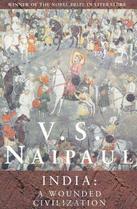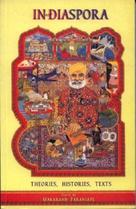 27.0%OFF
27.0%OFF

Download App
| >> | LShop | >> | Book | >> | Society & Social Sci... | >> | Social Services & We... | >> | Debt: The First 5, 0... |
 27.0%OFF
27.0%OFF
Debt: The First 5, 000 Years
-
ISBN
:
9781933633862
-
Publisher
:
Melville House
-
Subject
:
Social Services & Welfare, Criminology, Economics, History
-
Binding
:
HARDCOVER
-
Pages
:
544
-
Year
:
2011
₹
2730.0
 27.0% OFF
27.0% OFF
₹
1992.0
Buy Now
Shipping charges are applicable for books below Rs. 101.0
View Details(Imported Edition) Estimated Shipping Time : 15-18 Business Days
View Details-
Description
Before there was money, there was debt Every economics textbook says the same thing: Money was invented to replace onerous and complicated barter systems—to relieve ancient people from having to haul their goods to market. The problem with this version of history? There’snot a shred of evidence to support it. Here anthropologist David Graeber presents a stunning reversal of conventional wisdom. He shows that for more than 5,000 years, since the beginnings of the first agrarian empires, humans have used elaborate credit systems to buy and sell goods—that is, long before the invention of coins or cash. It is in this era, Graeber argues, that we also first encounter a society divided into debtors and creditors. Graeber shows that arguments about debt and debt forgiveness have been at the center of political debates from Italy to China, as well as sparking innumerable insurrections. He also brilliantly demonstrates that the language of the ancient works of law and religion (words like “guilt,” “sin,” and “redemption”) derive in large part from ancient debates about debt, and shape even our most basic ideas of right and wrong. We are still fighting these battles today without knowing it. Debt: The First 5,000 Years is a fascinating chronicle of this little known history—as well as how it has defined human history, and what it means for the credit crisis of the present day and the future of our economy.
-
Author Biography
David Graeber teaches anthropology at Goldsmiths, University of London. He is the author of Towards an Anthropological Theory of Value, Lost People: Magic and the Legacy of Slavery in Madagascar, Fragments of an Anarchist Anthropology, Possibilities: Essays on Hierarchy, Rebellion, and Desire, and Direct Action: An Ethnography. He has written for Harper’s, The Nation, Mute, and The New Left Review. In 2006, he delivered the Malinowski Memorial Lecture at the London School of Economics, an annual talk that honors “outstanding anthropologists who have fundamentally shaped the study of culture.”In the summer of 2011, he worked with a small group of activists and Adbusters magazine to plan Occupy Wall Street. Bloomberg Businessweek has called him an "anti-leader" of the movement. The Atlantic wrote that he "has come to represent the Occupy Wall Street message... expressing the group's theory, and its founding principles, in a way that truly elucidated some of the things people have questioned about it."
Related Items
-
of












 1992.0
1992.0






 446.0
446.0














